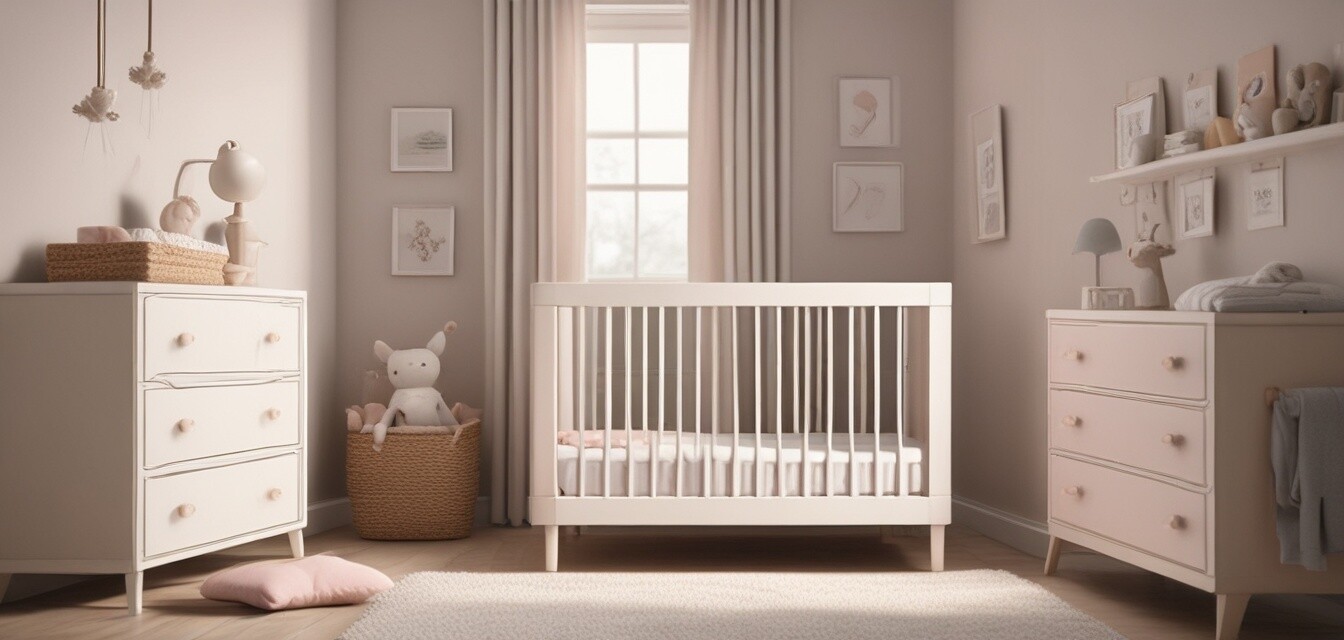
The impact of mattress age on sleep quality
Key takeaways
- The age of a cot mattress significantly influences a baby's sleep quality.
- Regular inspection of mattresses can help identify wear and tear.
- Proper maintenance can extend mattress life and ensure safety.
- Consider replacing a mattress every 3-5 years for optimal quality.
- Different mattress types have varying longevity and care instructions.
As parents, ensuring your baby's comfort and safety during sleep is a priority. One of the often-overlooked factors that can affect sleep quality is the age of the cot mattress. Over time, cot mattresses can wear down, lose their supportive features, and become less hygienic, which can disrupt your child's slumber. In this article, we’ll explore how mattress age impacts sleep quality and when it might be time to consider replacing it.
How does mattress age affect sleep quality?
A cot mattress serves as the foundation for your baby's sleep environment. As your mattress ages, various factors can diminish its quality. Below are the key aspects affected by mattress age:
- Support: Over time, the inner support structures can break down, leading to inadequate support for your baby’s developing body.
- Hygiene: Older mattresses can accumulate allergens, dust mites, and bacteria, which may affect your child's health.
- Comfort: Mattress materials can compress and degrade, leading to a less comfortable sleeping surface.
- Safety: Worn-out mattresses can pose safety hazards such as entrapment or suffocation.
Signs your cot mattress may be aging
To determine whether your cot mattress needs replacing, look for signs of wear and damage. Here’s a helpful checklist:
| Indicator | What to Look For |
|---|---|
| Visible Damage | Tears, sagging, or broken seams |
| Odors | Persistent smells that won’t go away, even after cleaning |
| Allergy Symptoms | Increase in allergies or respiratory issues in your child |
| Age | Mattresses over 3-5 years old, depending on use |
| Noise | Unusual noises when a baby moves on the surface |
Mattress types and lifespan
Different types of cot mattresses come with varied lifespans and maintenance requirements. Understanding these differences can help you make an informed decision:
| Mattress Type | Typical Lifespan | Maintenance Tips |
|---|---|---|
| Innerspring | 5-7 years | Rotate regularly, check for sagging |
| Foam | 3-5 years | Keep clean and dry, avoid direct sunlight |
| Latex | 5-8 years | Regularly air out, prevent moisture build-up |
| Hybrid | 5-7 years | Rotate to maintain even wear, avoid excessive moisture |
| Organic | 5-8 years | Use a breathable cover, avoid harmful chemicals |
How to maintain your cot mattress
Proper maintenance of your baby's cot mattress is essential to ensure its longevity and hygienic condition. Here are some tips:
Beginner’s tips for cot mattress maintenance
- Use a protective cover: Waterproof and hypoallergenic covers can protect against spills and allergens.
- Regular cleaning: Spot clean with mild soap and warm water, and air out every few months.
- Store correctly: If not in use, store the mattress in a dry, clean space to prevent mold growth.
- Rotate regularly: Flip or rotate the mattress to promote even wear.
- Inspect periodically: Check for any damages, stains, or dirt and address them immediately.
When is it time to replace the mattress?
Knowing when to replace your cot mattress is crucial. As mentioned earlier, consider replacement if your mattress shows significant wear or does not meet safety standards. Here are some additional factors to consider:
- Children's growth spurts: As your baby grows, they may require a firmer or different type of mattress.
- Health changes: Allergies or respiratory problems may warrant a change, especially if related to sleeping conditions.
- Changing sleep patterns: If your baby seems restless or uncomfortable, it might be a sign to assess the mattress.
Conclusion
Understanding the impact of mattress age on your baby’s sleep quality is vital in ensuring a safe and comfortable sleeping environment. Regular inspection, appropriate maintenance, and being mindful of signs that indicate a need for replacement can make a significant difference. By providing the best sleep conditions, you set the stage for a happy and healthy childhood. For more tips on keeping your baby’s sleeping conditions safe and clean, check out our Cot Mattress Maintenance section.